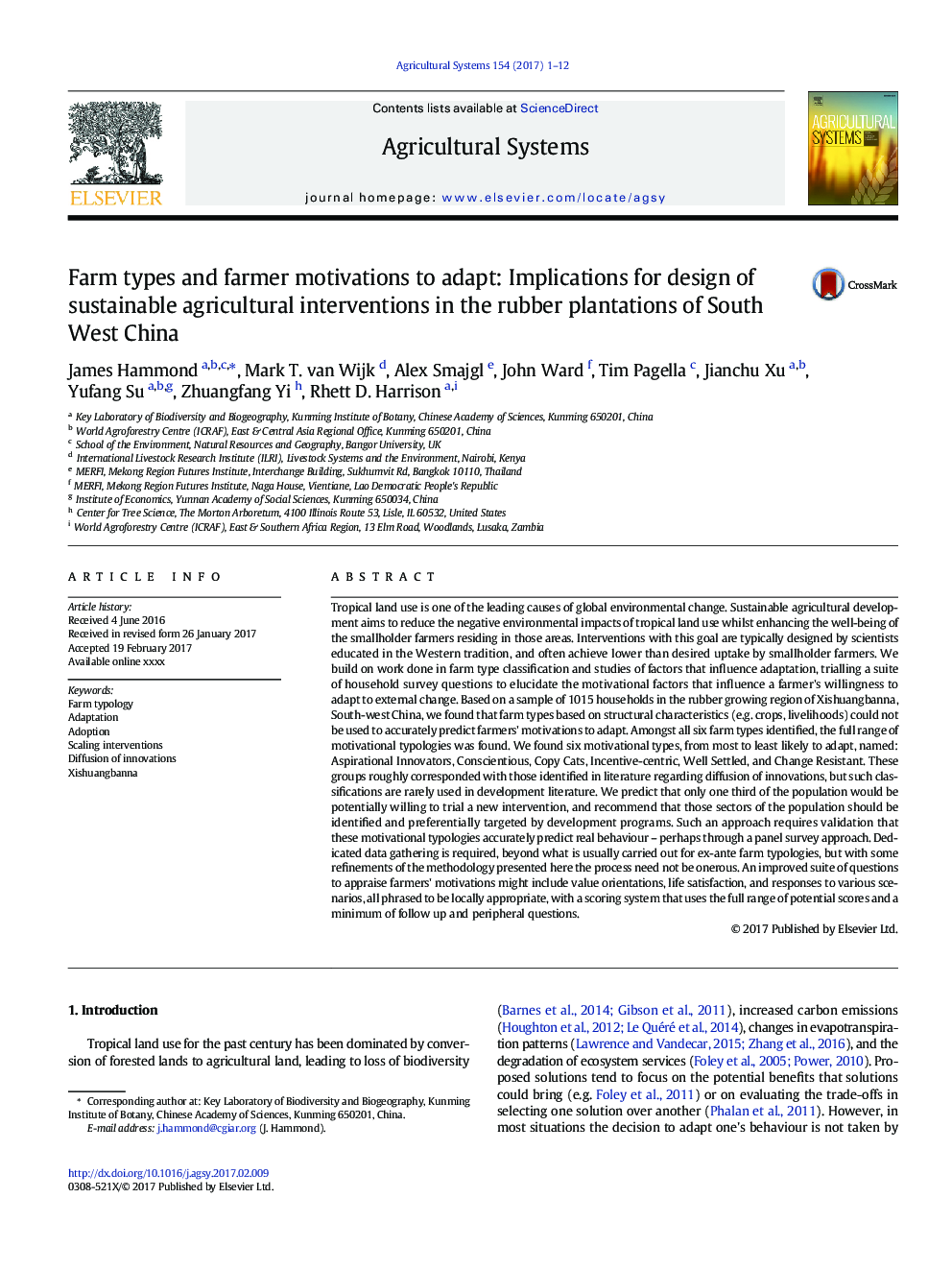| کد مقاله | کد نشریه | سال انتشار | مقاله انگلیسی | نسخه تمام متن |
|---|---|---|---|---|
| 5759656 | 1623216 | 2017 | 12 صفحه PDF | دانلود رایگان |
عنوان انگلیسی مقاله ISI
Farm types and farmer motivations to adapt: Implications for design of sustainable agricultural interventions in the rubber plantations of South West China
ترجمه فارسی عنوان
انواع مزرعه و انگیزه کشاورزان برای انطباق: پیامدهای طراحی مداخلات کشاورزی پایدار در گیاهان لاستیکی جنوب غربی چین
دانلود مقاله + سفارش ترجمه
دانلود مقاله ISI انگلیسی
رایگان برای ایرانیان
کلمات کلیدی
موضوعات مرتبط
علوم زیستی و بیوفناوری
علوم کشاورزی و بیولوژیک
علوم کشاورزی و بیولوژیک (عمومی)
چکیده انگلیسی
Tropical land use is one of the leading causes of global environmental change. Sustainable agricultural development aims to reduce the negative environmental impacts of tropical land use whilst enhancing the well-being of the smallholder farmers residing in those areas. Interventions with this goal are typically designed by scientists educated in the Western tradition, and often achieve lower than desired uptake by smallholder farmers. We build on work done in farm type classification and studies of factors that influence adaptation, trialling a suite of household survey questions to elucidate the motivational factors that influence a farmer's willingness to adapt to external change. Based on a sample of 1015 households in the rubber growing region of Xishuangbanna, South-west China, we found that farm types based on structural characteristics (e.g. crops, livelihoods) could not be used to accurately predict farmers' motivations to adapt. Amongst all six farm types identified, the full range of motivational typologies was found. We found six motivational types, from most to least likely to adapt, named: Aspirational Innovators, Conscientious, Copy Cats, Incentive-centric, Well Settled, and Change Resistant. These groups roughly corresponded with those identified in literature regarding diffusion of innovations, but such classifications are rarely used in development literature. We predict that only one third of the population would be potentially willing to trial a new intervention, and recommend that those sectors of the population should be identified and preferentially targeted by development programs. Such an approach requires validation that these motivational typologies accurately predict real behaviour - perhaps through a panel survey approach. Dedicated data gathering is required, beyond what is usually carried out for ex-ante farm typologies, but with some refinements of the methodology presented here the process need not be onerous. An improved suite of questions to appraise farmers' motivations might include value orientations, life satisfaction, and responses to various scenarios, all phrased to be locally appropriate, with a scoring system that uses the full range of potential scores and a minimum of follow up and peripheral questions.
ناشر
Database: Elsevier - ScienceDirect (ساینس دایرکت)
Journal: Agricultural Systems - Volume 154, June 2017, Pages 1-12
Journal: Agricultural Systems - Volume 154, June 2017, Pages 1-12
نویسندگان
James Hammond, Mark T. van Wijk, Alex Smajgl, John Ward, Tim Pagella, Jianchu Xu, Yufang Su, Zhuangfang Yi, Rhett D. Harrison,
